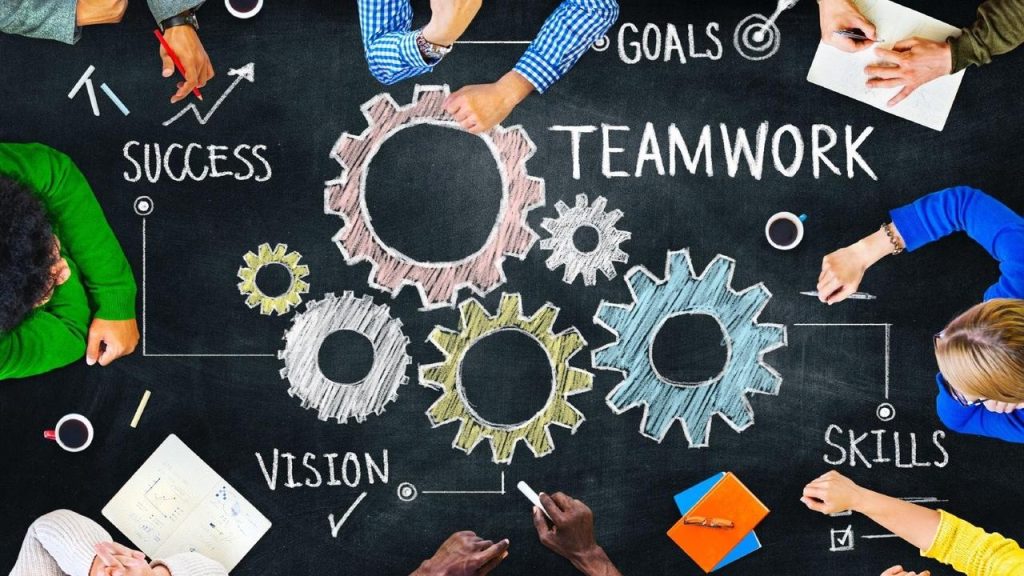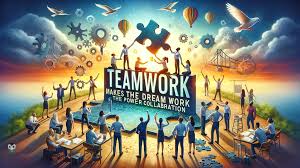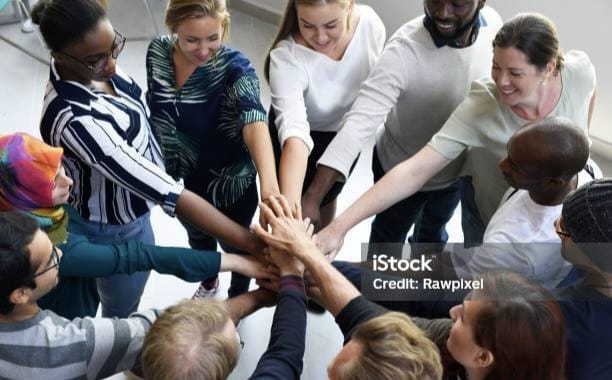The Importance of Teamwork: Building Stronger Organizations and Relationships
Teamwork is a critical element in virtually every aspect of our personal and professional lives. Whether it’s in the workplace, sports, or community activities, the ability to collaborate with others is essential to success. The saying, “teamwork makes the dream work,” highlights the value of collaboration, shared goals, and mutual support. This article will explore the significance of teamwork, its benefits, how to cultivate effective teamwork, and how it enhances both individual and collective performance.

What is Teamwork?
Teamwork refers to the combined effort of a group of individuals working together toward a common goal. It involves pooling each member’s unique skills, strengths, and knowledge to achieve success. In a team environment, members often rely on each other for support, motivation, and to complete tasks that would be difficult or impossible for an individual to accomplish alone.
Teamwork is not limited to professional settings. It can be seen in various forms, including sports teams, academic groups, volunteer organizations, or even within families. Each team member contributes toward a shared vision or objective, and their collective efforts lead to the team’s success.

The Benefits of Teamwork
Effective teamwork offers several advantages, both at a personal and organizational level. These benefits contribute significantly to achieving long-term success and maintaining a positive working environment. Below are some key benefits:
a. Enhanced Problem-Solving
When individuals with different skills and perspectives work together, they are more likely to generate creative solutions to problems. A team is able to approach challenges from multiple angles and bring diverse ideas to the table. This collective brainstorming often leads to innovative solutions that would not have been discovered through solo efforts.
In contrast, individuals working alone may become fixated on a single solution or struggle to identify new approaches. Teamwork breaks this barrier and opens up multiple avenues for problem-solving.
b. Increased Efficiency and Productivity
Collaboration within a team allows tasks to be divided according to each member’s strengths. Some individuals may excel in research, others in design, and others in implementation. By assigning responsibilities based on expertise, teams can maximize their productivity and accomplish tasks more efficiently.
Furthermore, teamwork can reduce the burden on individuals by spreading the workload. When team members support one another, tasks are completed faster and with better attention to detail.

c. Improved Communication Skills
Teamwork necessitates communication—both listening and speaking. Through collaboration, team members develop stronger communication skills, as they need to articulate ideas clearly, provide constructive feedback, and navigate interpersonal dynamics. Effective communication is fundamental to avoiding misunderstandings, improving cooperation, and ensuring that all members are aligned with the team’s goals.
As individuals interact with team members, they also learn how to listen actively, respect diverse viewpoints, and express themselves assertively but respectfully. These skills are transferable to other areas of life, enhancing personal and professional relationships.
d. Learning and Personal Growth
Working in a team provides individuals with opportunities to learn from others. Each member brings unique skills and perspectives that can be valuable learning experiences for everyone involved. Individuals can adopt new strategies, expand their knowledge, and gain insights that they may not have encountered on their own.
Teamwork also offers a chance for individuals to reflect on their strengths and areas for improvement. The feedback loop in collaborative environments helps people grow both personally and professionally.
e. Increased Morale and Motivation
When individuals collaborate in a supportive environment, they experience a sense of camaraderie and belonging. The collective success of a team can boost morale and motivation, making members feel valued and appreciated for their contributions. Positive reinforcement from teammates fosters a culture of mutual respect and encouragement, which leads to higher engagement and satisfaction.
In a well-functioning team, members are more likely to be motivated to contribute to the team’s success and work harder toward shared goals. Additionally, having a team to rely on can reduce stress and anxiety, as members feel supported during challenging times.

How to Foster Effective Teamwork
Building an effective team is not an overnight process. It requires intentional effort, open communication, and the development of a team culture that encourages collaboration. Below are some strategies to foster effective teamwork:
a. Encourage Collaboration from the Start
When forming a team, emphasize the importance of collaboration from the outset. Establish clear team goals, encourage open communication, and set expectations for mutual respect and cooperation. Create a team culture that values diverse contributions and provides space for everyone’s voice.
b. Provide Opportunities for Team Building
Organizing team-building activities can strengthen relationships and improve teamwork. These activities, whether they’re formal exercises or informal social gatherings, help team members bond and improve their ability to work together. Team-building activities encourage communication, trust-building, and problem-solving in a relaxed environment.
c. Promote Diversity and Inclusion
Encouraging diversity within a team can bring a variety of perspectives, experiences, and ideas, which ultimately enhances problem-solving and creativity. An inclusive environment where everyone feels valued and accepted will foster stronger teamwork.
d. Provide Training and Development
Equip team members with the skills they need to succeed by offering training in areas such as communication, conflict resolution, time management, and leadership. Continuous learning opportunities help individuals grow, which in turn benefits the team.
e. Recognize and Celebrate Success
Recognition is crucial to maintaining motivation and morale within a team. Celebrate both individual and collective achievements to reinforce the importance of teamwork. Recognition can come in many forms, from verbal praise to formal awards or team celebrations.
https://www.linkedin.com/in/satish-kakri-17224417/
https://nimblefoundation.org/
https://nimblefoundation.org/feedback.html
https://nimblefoundation.org/our-clients.html
Thanks for reading.